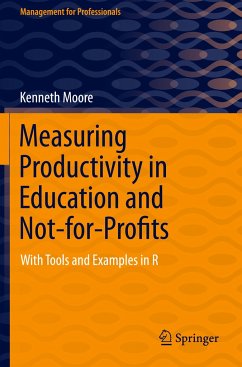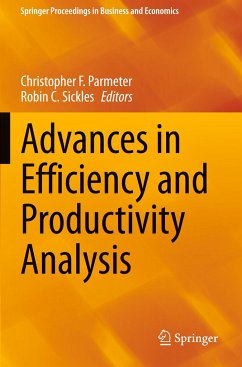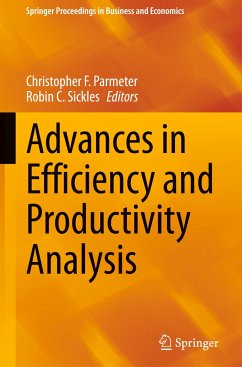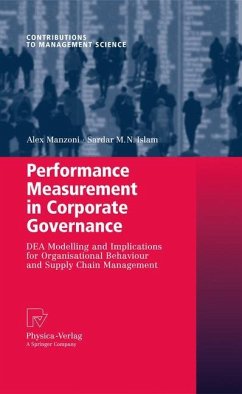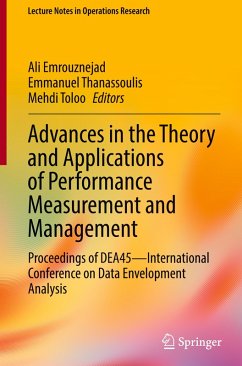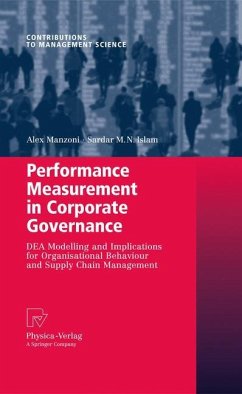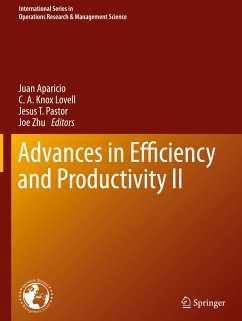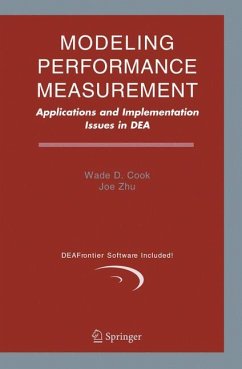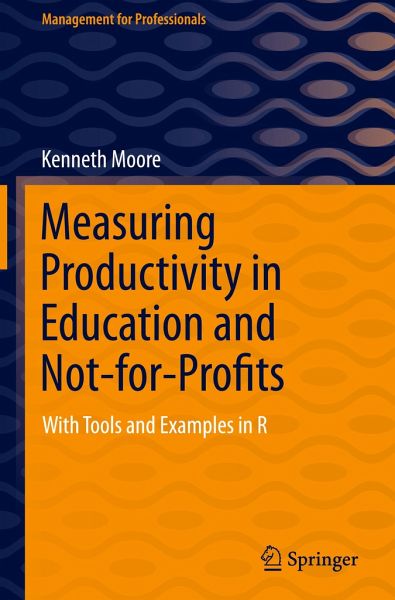
Measuring Productivity in Education and Not-for-Profits
With Tools and Examples in R
Versandkostenfrei!
Versandfertig in 6-10 Tagen
57,99 €
inkl. MwSt.
Weitere Ausgaben:

PAYBACK Punkte
29 °P sammeln!
This book takes the reader through real-world examples for how to characterize and measure the productivity and performance of NFPs and education institutions-that is, organisations that produce value for society, which cannot be measured accurately in financial KPIs. It focuses on how best to frame non-profit performance and productivity, and provides a suite of tools for measurement and benchmarking. It further challenges the reader to consider alternative and appropriate uses of quantitative measures, which are fit-for-purpose in individual contexts.It is true that the risk of misusing quan...
This book takes the reader through real-world examples for how to characterize and measure the productivity and performance of NFPs and education institutions-that is, organisations that produce value for society, which cannot be measured accurately in financial KPIs. It focuses on how best to frame non-profit performance and productivity, and provides a suite of tools for measurement and benchmarking. It further challenges the reader to consider alternative and appropriate uses of quantitative measures, which are fit-for-purpose in individual contexts.
It is true that the risk of misusing quantitative measures is ever-present. But does that risk outweigh the benefits of forming a more precise and shared understanding of what could generate better outcomes? There will always be concerns about policy and performance management. Goodheart's Law states that once a measure becomes a target, it is no longer a good measure. This book helps to strike a meaningful balance between what can be measured, what cannot, and how best to use quantitative information in sectors that are often averse to being held up to the light and put on a scale by outsiders.
It is true that the risk of misusing quantitative measures is ever-present. But does that risk outweigh the benefits of forming a more precise and shared understanding of what could generate better outcomes? There will always be concerns about policy and performance management. Goodheart's Law states that once a measure becomes a target, it is no longer a good measure. This book helps to strike a meaningful balance between what can be measured, what cannot, and how best to use quantitative information in sectors that are often averse to being held up to the light and put on a scale by outsiders.



